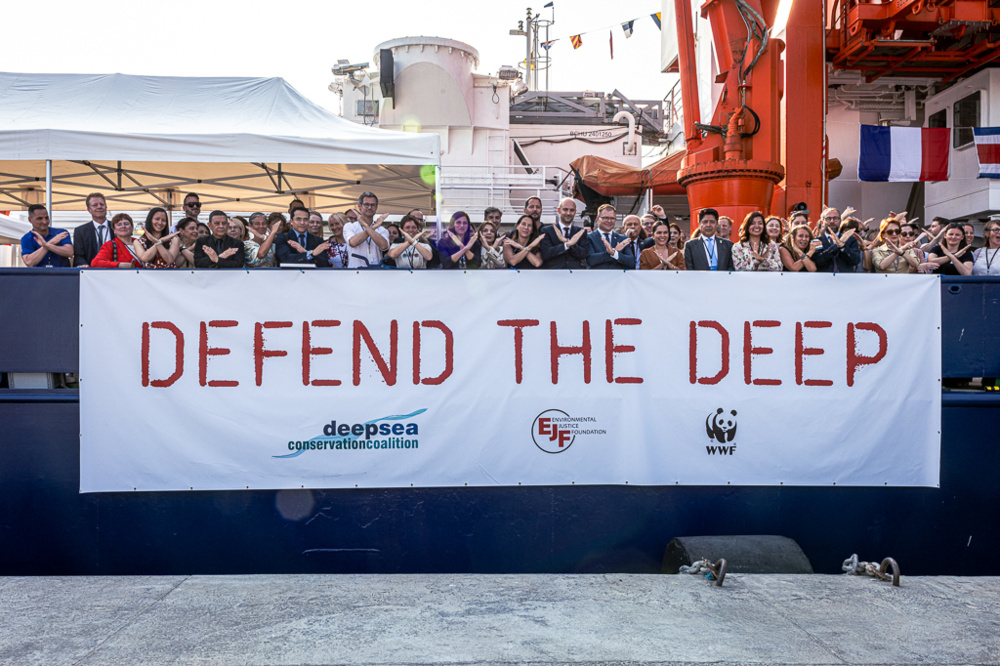Understanding the Call for a Moratorium on Deep-Sea Mining
Deep-sea mining has garnered significant attention in recent years as countries and industries explore the vast resources lying beneath the ocean floor. However, concerns over its environmental impact have led to calls for a moratorium on deep-sea mining activities.
The Environmental Dilemma of Deep-Sea Mining
One critical consideration is the potential irreversible damage to deep-sea ecosystems. Mining operations can disrupt fragile habitats, release harmful pollutants, and jeopardize unique biodiversity endemic to these regions. The deep sea, with its complex and poorly understood ecosystems, may face irreparable harm if mining proceeds unchecked.
The Ethical and Legal Quandaries
Another key aspect is the ethical and legal complexity surrounding deep-sea mining. Questions of ownership, sovereignty, and equitable resource distribution arise, highlighting the need for robust international regulations to govern these activities. The call for a moratorium reflects the concerns about the lack of comprehensive frameworks to address these fundamental issues.
Paving the Way for Sustainable Solutions
Looking ahead, the push for a moratorium on deep-sea mining presents an opportunity to shift the focus towards sustainable alternatives and innovative technologies. Collaborative efforts to research and understand deep-sea ecosystems better can lead to the development of environmentally friendly mining practices, ensuring the protection of these delicate marine environments for future generations.
Impacts of Deep-Sea Mining on Ocean Ecosystems
Deep-sea mining, while promising economic benefits, poses a grave threat to the delicate balance of our ocean ecosystems. The practice of mining mineral resources from the seabed can have far-reaching consequences on marine life and the environment as a whole.
Studies indicate that deep-sea mining can lead to habitat destruction, altering the seabed and disrupting the habitats of unique and often undiscovered species. The scars left by mining activities on the ocean floor are slow to heal, impacting biodiversity and the overall health of marine ecosystems.
Furthermore, the release of sediments and pollutants during the mining process can have devastating effects on marine organisms, including corals and other vulnerable species. The disruption of nutrient cycles and the introduction of toxic substances can lead to long-term damage, affecting not only local marine life but also global oceanic processes.
As we continue to exploit the resources of the deep seabed, we must consider the irreversible damage that we may be causing to our oceans. There is a pressing need for stricter regulations and environmental assessments to mitigate the negative impacts of deep-sea mining and protect the rich biodiversity that exists in these fragile ecosystems.
World Leaders Unite: A Collective Voice Against Underwater Exploitation
As world leaders come together to address the critical issue of underwater exploitation, their collective voice echoes a unified commitment to preserving our oceans’ delicate ecosystems. By raising awareness and implementing sustainable practices, these global figures aim to safeguard marine life and habitats for future generations.
Championing Marine Conservation Efforts
Through collaborative efforts and international agreements, leaders advocate for responsible fishing practices, marine protected areas, and the reduction of ocean pollution. Their proactive stance emphasizes the importance of prioritizing marine conservation to combat the threats facing underwater environments.
Fostering Global Cooperation
By fostering international cooperation, world leaders pave the way for joint initiatives that tackle issues such as overfishing, habitat destruction, and climate change impacts on oceans. Through diplomatic dialogue and shared strategies, they work towards sustainable solutions that benefit both marine biodiversity and human well-being.
UN Ocean Summit: Key Discussions and Outcomes
Breaking Down the Headlines
The recent UN Ocean Summit brought together global leaders, scientists, and environmentalists to discuss pressing issues affecting our oceans. Key topics included marine pollution, overfishing, climate change impacts, and sustainable ocean management.
The Bigger Picture
This summit sheds light on the critical need for immediate action to protect our oceans. With rising sea levels, plastic pollution, and declining marine biodiversity, sustainable solutions are paramount to ensure the health of our oceans and marine ecosystems.
What This Means Going Forward
Looking ahead, the outcomes of the UN Ocean Summit are likely to drive policy changes, fuel innovation in sustainable ocean practices, and lead to collaborative efforts to conserve marine resources. Stakeholders, including governments, industries, and the public, will need to actively engage in initiatives that promote ocean health for future generations.
